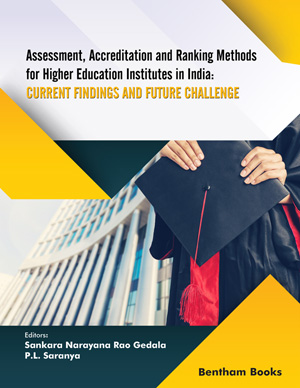Abstract
The Higher Educational Institutions (HEIs) are to be transformed from paper-based hard copies to E-mode soft copies for data preparation, maintenance, and submission to any ranking agency. In this context, the digital platform is to be created for the distribution of information. Apart from that, government, aided, and private institutions have been facing many issues to transform the knowledge as per the stakeholder needs in terms of assessment criteria like curricular aspects, teachinglearning, and evaluation. Artificial intelligence (AI) is a buzzword in the higher education sector, as it is considered necessary to change the entire world’s face, taking steps towards digitization. Smartphone usage by the student and teacher community is rapidly growing in all parts of the world. This research focuses on virtual connectivity through smart devices for better, effective results to beat the world competition. The extensive use of the smartphone for the right cause can help us in the right ways, such as in IPR notifications and preparatory documents for research publications in reputed journals and conferences, innovations through patent filing, and book publications. This proposed framework indicates how long and in what way students can equip themselves with the required skills. The present system recommends the overall evaluation category as exceptional, good, above average, or below average with parameters such as intellectual ability, maturity, perseverance, oral and written communication, analytical ability, imagination and creative ability to work with others, potential as a researcher, and self-confidence. Many semi-urban, rural, and agency teachers and students to date struggle due to not having the proper infrastructure or facilities for their education. Where there is a shortage of amenities such as teaching, library, and sports, AI technology can be handy. There is a huge amount of data being generated from different institutions and handling this amount of data using the RDBMS is very difficult. This is where big data comes into the picture. Big data is one of the key pillars of global digitization. By using big data, we can improve education quality and coordination and reduce maintenance costs. Predictive analytics and statistical tools and techniques can be used to improve student learning course outcomes.
Keywords: Accreditation, AI, Analytics, Assessment, Big data, Computer, Decision making, Digitization, E-certificate, E-learning, E-registration, Employability, Gurukul, HEIs, Internet, Intelligence systems, Machine learning, Ranking, Social media, Sustainability, Technology.













